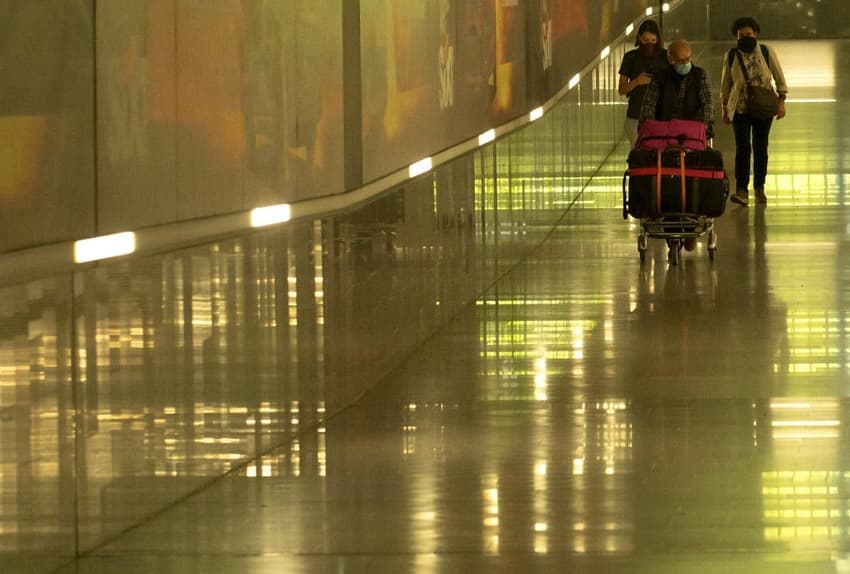UPDATED: What Austria’s ‘vaccine expiry date’ means for travellers

Vaccines will now be deemed effective in Austria only for one year after the final jab. Previously they 'expired' after 270 days.
One aspect of the science which is as yet unclear about Covid vaccines is how long the immunity lasts.
While each of the vaccines that is being administered in Austria has been shown to be highly effective against both the original incarnation of the virus and subsequent mutations, experts are uncertain as to the duration of immunity – primarily because not enough time has passed to see just how long the antibodies last.
UPDATED: What are the rules for entering Austria right now?
Austria has taken a relatively novel approach with regard to immunity from both vaccines and recovery.
Initially, visitors to the Alpine state were deemed to have protection for 270 days after the second shot - or for 270 days after your only shot in the case of the one-shot Johnson and Johnson vaccine.
The same went for people who live in Austria and using the 3G system to access pubs, bars, events, hairdressers and everywhere else Austria’s green pass is required.
The duration of the vaccine will now be set to 365 days in Austria, which is more in line with other countries,
Immunity: How long are vaccinations valid for in Austria?
What does this mean for travellers?
If you were one of the first to get vaccinated, your vaccination will no longer expire in 2021, according to the Austrian authorities.
However, if you were fully vaccinated in January, your immunity might be deemed to expire in January 2023.
While Austria is in the process of administering booster shots in some states, these so far are targeted primarily at people in certain categories. For example, from mid-September, all people aged 65 and over, risk and high-risk patients as well as those who have received AstraZeneca or Johnson & Johnson as a primary vaccination, will be able to receive a booster jab in Lower Austria.
UPDATE: Austria to roll out Covid booster shots in autumn
The Austrian government has not indicated whether it will extend booster shots to all the general population - around 60 percent of which is fully vaccinated (5.2 million).
Comments
See Also
One aspect of the science which is as yet unclear about Covid vaccines is how long the immunity lasts.
While each of the vaccines that is being administered in Austria has been shown to be highly effective against both the original incarnation of the virus and subsequent mutations, experts are uncertain as to the duration of immunity – primarily because not enough time has passed to see just how long the antibodies last.
UPDATED: What are the rules for entering Austria right now?
Austria has taken a relatively novel approach with regard to immunity from both vaccines and recovery.
Initially, visitors to the Alpine state were deemed to have protection for 270 days after the second shot - or for 270 days after your only shot in the case of the one-shot Johnson and Johnson vaccine.
The same went for people who live in Austria and using the 3G system to access pubs, bars, events, hairdressers and everywhere else Austria’s green pass is required.
The duration of the vaccine will now be set to 365 days in Austria, which is more in line with other countries,
Immunity: How long are vaccinations valid for in Austria?
What does this mean for travellers?
If you were one of the first to get vaccinated, your vaccination will no longer expire in 2021, according to the Austrian authorities.
However, if you were fully vaccinated in January, your immunity might be deemed to expire in January 2023.
While Austria is in the process of administering booster shots in some states, these so far are targeted primarily at people in certain categories. For example, from mid-September, all people aged 65 and over, risk and high-risk patients as well as those who have received AstraZeneca or Johnson & Johnson as a primary vaccination, will be able to receive a booster jab in Lower Austria.
UPDATE: Austria to roll out Covid booster shots in autumn
The Austrian government has not indicated whether it will extend booster shots to all the general population - around 60 percent of which is fully vaccinated (5.2 million).
Join the conversation in our comments section below. Share your own views and experience and if you have a question or suggestion for our journalists then email us at [email protected].
Please keep comments civil, constructive and on topic – and make sure to read our terms of use before getting involved.
Please log in here to leave a comment.